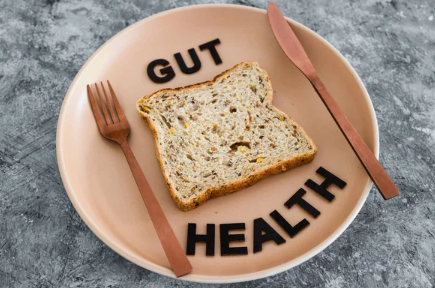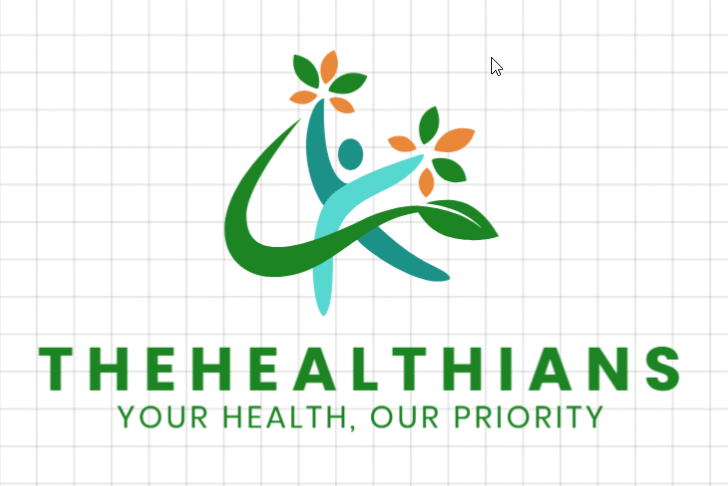
We’ve all heard the phrase “you are what you eat,” but what if the real truth is: you are what your gut absorbs? Your digestive system is more than just a food-processing machine—it’s the command center of your health. With over 70% of your immune system housed in your gut and a direct link between your digestive tract and your brain, understanding gut health is essential for anyone looking to improve overall wellness.
In this comprehensive guide, you’ll learn why gut health is critical, how it influences your body and mind, and practical ways to restore and maintain it—without extreme diets, expensive supplements, or complicated routines.
Table of Contents
ToggleWhat Is Gut Health and Why Does It Matter?
Gut health refers to the condition and functionality of your gastrointestinal (GI) system, especially the balance of the trillions of bacteria, fungi, and microorganisms in your gut microbiome. A healthy gut absorbs nutrients effectively, digests food smoothly, regulates hormones, eliminates waste efficiently, and supports immune and brain function.
When your gut is in good shape, you feel energized, focused, and resilient. But when it’s out of balance, you may experience bloating, fatigue, mood swings, food cravings, skin issues, or even poor sleep. Breaking down food into usable nutrients
Producing vitamins and essential amino acids
Supporting the gut lining to prevent “leaky gut”
Regulating immune responses
Signaling to the brain (via the gut-brain axis)
Helping maintain balanced hormones
When gut health is compromised—through poor diet, chronic stress, antibiotics, lack of sleep, or lack of movement—it affects digestion, absorption, mental health, immune function, energy, skin, and inflammation
2. Signs Your Gut Might Be Out of Balance
Not all gut imbalances show up as digestive issues. Sometimes, subtle clues point to an unhealthy microbiome:
Bloating, gas, or irregular bowel movements
Persistent fatigue or lack of focus
Anxiety, mood swings, or low mood
Unexplained skin problems like acne or eczema
Frequent colds or infections
Sugar cravings or poor appetite control
If any of these resonate with you, it’s not just coincidence—it all traces back to gut health.For more science-backed ways to support your gut health, https://www.healthline.com/health/gut-health
3. How Diet Directly Impacts Gut Health
What you eat doesn’t just fuel your body—it feeds your gut bacteria. Some foods nurture good bacteria, while others feed harmful ones.
A. Fiber-Rich Foods – Prebiotics
Fiber is the fuel for beneficial gut bacteria. Good sources include:
Leafy greens: spinach, kale, arugula
Whole grains: oats, barley, quinoa, brown rice
Legumes: lentils, chickpeas, beans
Fruits: apples, berries, bananas, pears
Vegetables: artichokes, asparagus, sweet potato
Eating a fiber-rich diet supports microbiome diversity, helps regulate blood sugar, and promotes regular digestion.
B. Fermented Foods – Natural Probiotics
Fermented foods contain live cultures that beneficially interact with your microbiome:
Yogurt and kefir
Sauerkraut and kimchi
Kombucha
Pickles (naturally fermented)
Miso
Including multiple fermented foods weekly supports digestion, nutrient absorption, and immune resilience.
C. Anti-Inflammatory, Nutrient-Dense Options
Foods that reduce inflammation and support gut integrity include:
Fatty fish: salmon, mackerel, sardines (rich in omega-3s)
Nuts and seeds: walnuts, chia, flax, hemp
Colorful vegetables: bell peppers, carrots, tomatoes, cruciferous veggies
Fruits: berries and citrus fruits
Healthy fats: olive oil, avocado, nuts
These provide essential vitamins (A, C, E), minerals, and antioxidants that nourish the gut lining and support metabolic function.
D. Foods to Limit or Avoid
Certain foods encourage harmful gut bacteria or leaky gut:
Processed sugar and artificial sweeteners
Ultra-processed convenience foods
Excess alcohol
Trans fats and hydrogenated oils
High-fructose corn syrup
Minimizing these is crucial for a healthy gut environment.
4. Habits That Promote Lasting Gut Health
Food is just one piece of the puzzle. These daily habits significantly bolster digestion, microbial balance, and whole-body wellness.
A. Stay Hydrated
Water aids digestion, nutrient transport, and toxin elimination. Make hydration a priority—carry water and regain impulse when you feel tired or off-balance.
B. Move Daily
Light to moderate exercise—walking, yoga, resistance training—promotes gut motility (meaning no more sluggish digestion), reduces inflammation, and supports microbial diversity.
C. Manage Stress
Chronic stress elevates cortisol, disrupts digestion, and alters your microbiome. Practices like deep breathing, meditation, journaling, or a short walk are potent gut-health allies.
D. Prioritize Sleep
Poor sleep disrupts the circadian rhythm, which directly affects gut function and microbial rhythms. Aim for 7–9 hours with consistent bedtime habits.

5. Understanding the Gut–Brain Axis
One of the most fascinating discoveries in wellness science is the gut-brain axis—the two-way communication between your digestive tract and your brain. About 90% of serotonin (your happy hormone) is produced in the gut. That means your mental health—mood, cognitive function, anxiety—is intimately tied to gut health.
Supporting your microbiome (via fiber, fermented foods, hydration, and stress management) supports better emotional regulation, resilience, and focus.
6. Practical Tips for Gut Health on a Budget
You don’t need expensive supplements to support gut health—these strategies keep costs low:
Buy frozen fruits and veggies
Batch-cook legumes and whole grains
Make simple fermented foods at home (like sauerkraut)
Prioritize whole foods over packaged snacks
7. When to See a Professional
If you experience persistent symptoms like severe bloating, reflux, chronic diarrhea, unexplained weight changes, or fatigue, consider consulting a gastroenterologist or registered dietitian. They can help you investigate imbalances, test for food sensitivities (like intolerances to dairy or gluten), and create a personalized plan.
8. Debunking Common Gut Health Myths
Probiotics cure all: Supplements can help, but real food, lifestyle, and stress management are more foundational.
Gut health is only about digestion: It influences immunity, mood, hormones, sleep, skin, weight, and brain function.
One-size-fits-all diets: Everyone’s microbiome is unique. Trial, habit tracking, and gradual changes matter.
Clean eating means gut success: Not always; irregular sleep, chronic stress, or low activity can still disrupt your microbiome.
9. Beyond Food—Building a Gut-Healthy Lifestyle
Gut health thrives on holistic wellness:
Brain boosting: Mindful breathing and journaling
Muscle building: Strength training supports digestion
Vagus nerve: Deep breathing stimulates gut motility
Social connection: Laughter, community, conversation are good for gut + mood
Final Takeaway: Your Gut Is the Foundation of Your Health
Investing in your gut health means investing in your entire well-being. Digestion. Energy. Immunity. Mood. From foundational nutrition to sleep, stress management, and movement—this guide gives you the tools to build a healthy, balanced lifestyle.
To build a healthier gut, it’s also important to focus on overall lifestyle habits. Learn how to customize your wellness journey with https://thehealthians.com/7-steps-to-vibrant-fitness-your-way/
Start small: add an extra serving of vegetables, sip herbal tea before bed, take a post-meal walk. Over time, these tiny shifts reshape your health, beginning in your gut but radiating to every part of life.
You don’t need a perfect plan—you need a healthy gut. And when your gut thrives, everything else follows.
Let me know if you’d like this formatted for WordPress, need a meta description, or a social media post to promote it.
Sample 7-Day Meal Plan to Support Gut Health
| Day | Meal Details |
|---|---|
| Mon |
Breakfast: Overnight oats with mixed berries and chia Lunch: Quinoa salad with chickpeas, spinach, olives, and olive oil Snack: Apple slices + almond butter Dinner: Baked salmon, sweet potato, sautéed broccoli |
| Tue |
Breakfast: Greek yogurt with honey and walnuts Lunch: Lentil soup + whole grain bread Snack: Carrots with hummus Dinner: Stir-fry with tofu, mixed vegetables, brown rice |
| Wed |
Breakfast: Smoothie with kefir, banana, spinach, flaxseed Lunch: Turkey wrap with whole grain tortilla, veggies, avocado Snack: Pineapple chunks (digestive enzymes) Dinner: Chicken, quinoa, roasted Brussels sprouts |
| Thu |
Breakfast: Oatmeal with pumpkin seeds, berries Lunch: Mediterranean salad with feta, chickpeas, olive oil Snack: Cucumber with tzatziki Dinner: Grilled fish tacos on corn tortillas, slaw |
| Fri |
Breakfast: Avocado toast on sprouted grain bread, egg Lunch: Mixed bean bowl with salsa, rice Snack: Yogurt + sliced strawberries Dinner: Veggie curry with brown rice |
| Sat |
Breakfast: Chia pudding with mango Lunch: Spinach and chickpea soup Snack: Pear + handful of walnuts Dinner: Turkey meatballs, whole wheat pasta, tomato sauce |
| Sun |
Breakfast: Pancakes from oat flour and banana Lunch: Buddha bowl: quinoa, roasted veggies, tahini dressing Snack: Kefir smoothie Dinner: Herb-roasted chicken, green beans, sweet potato |
Final Thought: It’s About Progress, Not Perfection
Fitness isn’t just about building muscle or burning fat—it’s about showing up for yourself consistently. It’s about nourishing your body with movement and gut-friendly foods that support your energy, digestion, immunity, and longevity.
Even if your schedule is chaotic, you can:
Walk after meals to support digestion
Eat prebiotic-rich foods like bananas, garlic, and oats
Practice 10-minute movement sessions
Hydrate consistently
Sleep 7+ hours for full-body recovery
None of these require perfection—but together, they create powerful transformation.
If your goal is to feel healthier, more energized, and in control—start by staying consistent and prioritizing your gut health. One small action at a time. One day at a time.

5 thoughts on “Gut Health: The Ultimate Guide to Your Body’s Hidden Superpower”